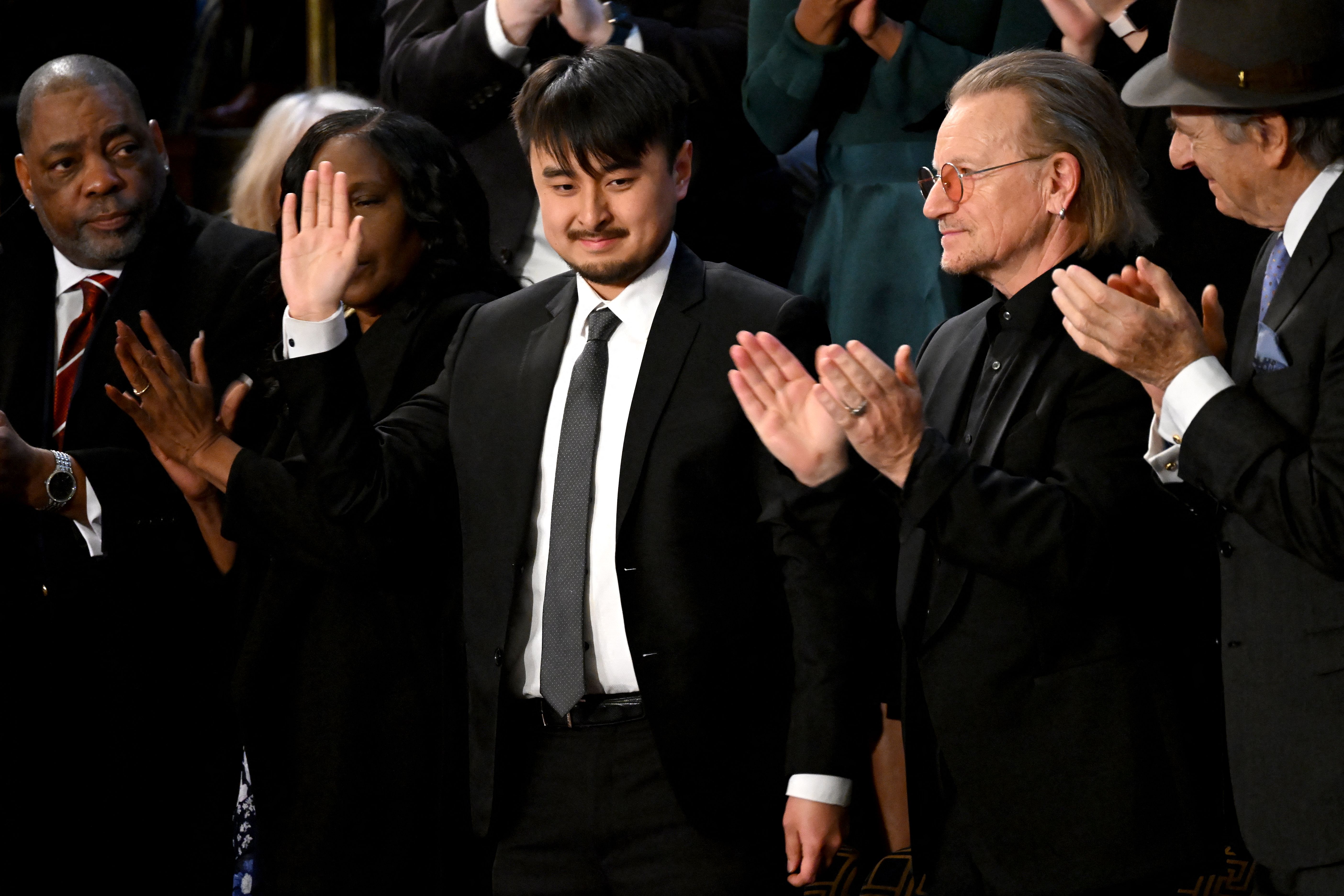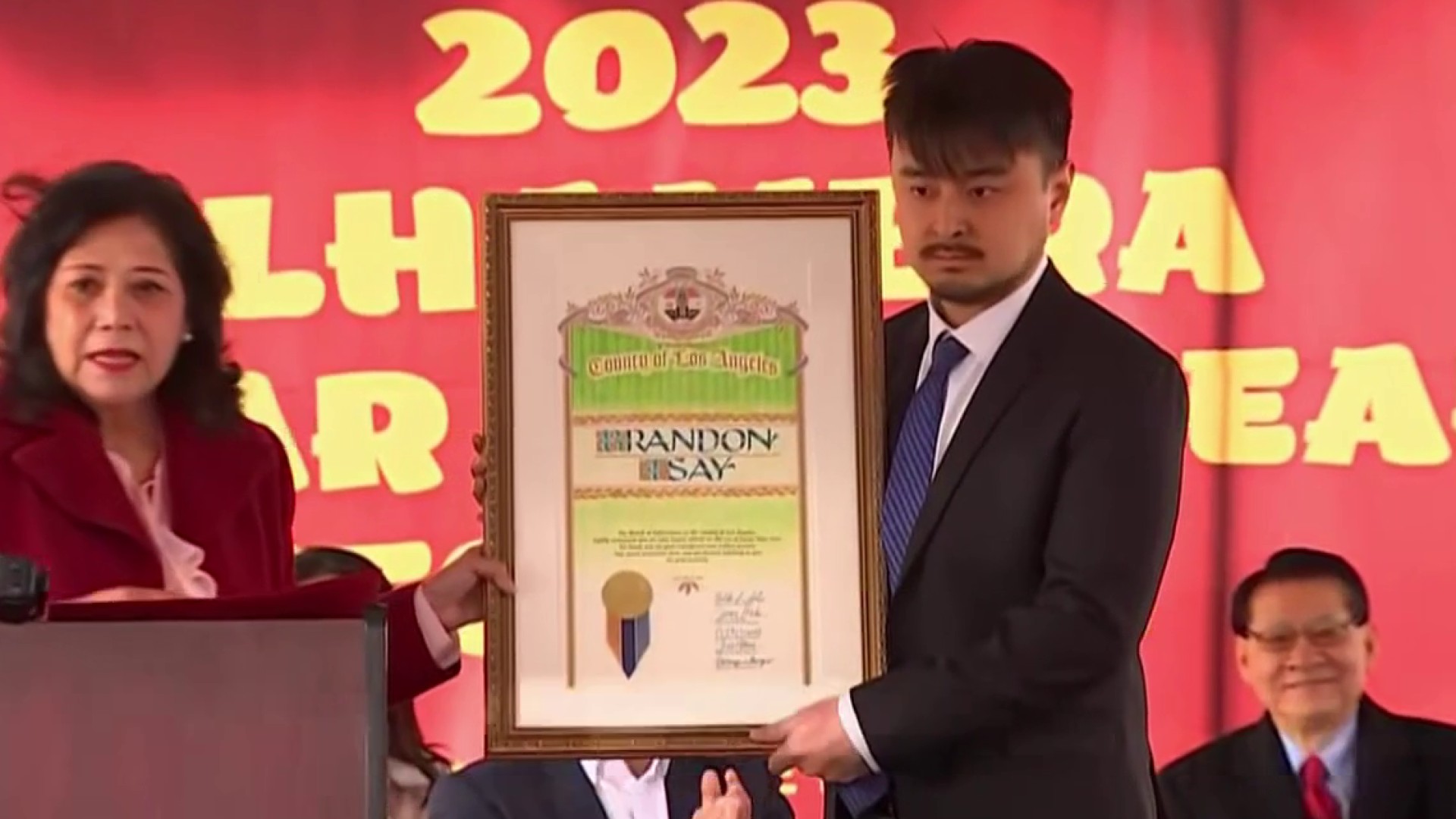A few months ago, Brandon Tsay become a national hero after he disarmed a mass shooter as the gunman scouted a second dance hall after already shooting dead 11 people at a dance studio in Monterey Park.
Following his heroics at the second dance studio in Alhambra, Tsay received nationwide plaudits. The Monterey Park City Council honored him, as did President Joe Biden, who invited Tsay to the State of the Union address. The Los Angeles Lakers, Galaxy and LAFC all spotlighted him at their stadiums.
But despite the adoration, Tsay remains humble, saying that he does not consider himself a hero but just someone who was doing the right thing. In an exclusive interview with NBC4, Tsay spoke about the "daunting" challenge of becoming a household name, as well as his struggle to cope following the shooting.
"It's a very tight-knit community. I just felt that, 'Oh my God, how could this happen to us?' How could this happen to my aunties and uncles that I've known for so many years?" Tsay recalled feeling as he thought about all the victims.
Get top local stories in Southern California delivered to you every morning. Sign up for NBC LA's News Headlines newsletter.
On that night in January, after the gunman had killed 11 people in Monterey Park, he entered the Lai Lai Ballroom & Studio in nearby Alhambra about 20 minutes later, just as the family run business was about to close down for the night.
Tsay, whose family opened the studio three decades ago, was working that night. Though he viewed himself before as someone who would run away in such a scenario, that night was different as Tsay mustered up the courage to wrestle the firearm from the 72-year-old gunman's hands when the man walked into the lobby.
"I think previously, before I've ever gotten to that point, I've always thought of myself as somebody who would, you know, hide or run. But now that I've had this experience, you know, it's been really eye-opening. I realized that I'm someone who would want to stop injustice if I see it," Tsay said.
Recovering and moving on has been a challenge, though. At first, Tsay said he would replay the incident over and over again in his head. However, he has since found himself seeking help and resources to process his trauma.
"At first, I was very reluctant to get help for myself. When I was first going through this, weeks after the incident, I really had nightmares, unable to sleep, angstiness, paranoia in spaces with a lot of people and public spaces especially," Tsay said. "I would just be looking over my shoulder, seeing if there's anybody suspicious. I would just be eyeing people for no reason, and that's when I realized, 'I need to get help. This is not healthy.'"
In the weeks and months since the shooting, Tsay has found ways to help his community while realizing that he doesn't need to live up to other people's image of a hero.
"Well, at first it was very daunting. How do I be a hero? Since then, I realized that you don't need to be the hero everybody thinks of you. You just need to be who you are as a person and really hold your character true," Tsay said.



